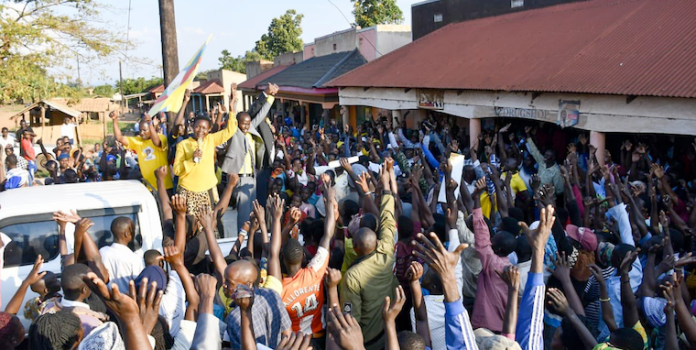Many Ugandans particularly women and young people are excluded from entering and participating in politics because they cannot afford it, according to a research published on 28 October 2020 by the Public Policy Institute (PPI), Westminster Foundation for Democracy (WFD) and the Netherlands Institute for Multiparty Democracy (NIMD)
The skyrocketing cost of politics is an enormous threat to the kind of inclusive politics that is necessary for equitable development and sustainable peace in Uganda. Could there be an end to the increased monetization of politics in the Country? Well, the Executive and Parliamentary branches of the state, the civil society and the media should treat this matter with the urgency it deserves.
While money does not guarantee success in an election, if you don’t have enough money then you don’t stand a chance of even being nominated for a political position. For example, in the NRM party, any member seeking to become the party’s presidential flag bearer is required to pay 20 million Uganda Shillings, while 3 million Uganda shillings is for parliamentary flag bearer contestants. This is a very high stake for many Ugandans including the majority population who are the youths and women.
Will the NRM ever cut the costs of being their representative? There that argument that always comes out all political parties the world over derives ample resources from membership and nomination fees, the sale of party memorabilia, and from donations by well-to-do members. In Uganda political parties are, for the most part, forced to give out their memorabilia such as t-shirts and caps free of charge because only a few people are willing to pay for them. Membership cards are also given out free of charge for the same reason.
So, the debate is not about abolishing completely the nomination fees, but rather slashing the said amount to increase capabilities of party members and the general citizen to participate, but to also as well reduce the rugged nature of the political terrain
On the other hand, there is also increased campaign spending in the country which goes down un-regulated. The cost of going to campaigns has gone over board and should be subject of urgent discussion. The financial cost of campaigning is however not directly proportion to the assurance of victory in an election. This raises concerns of electoral violence as the election terrain becomes a do, or dies game due to the heavy investments, which is often a result of huge bank loans
In 2023, the Chief Magistrates court at Mengo remanded the Bunyangabu Member of Parliament, Davis Kamukama to Luzira civil Prison for six months, over a shs69.1 million debt. However, it has always been said that many members of parliament are languishing in huge debts from money lenders and bank loans as a result of the high expenditures in campaigns, debts they are still being up to today.
Recently, President Yoweri Kaguta Museveni gift 100 million shillings from the State House classified expenditure to all legislators as a bail-out citing financial stress and increased monitory demands from the electorates.
Will election spending ever be regulated in Uganda? This should be a great concern. Un- regulated election and campaign spending has made the election terrain a violent one, citing it as the lead cause of electoral violence, voter bribery, and electoral fraud etc of which all these backslide the democratization process.
The country is breeding a very dangerous and disastrous political culture through un-regulated election spending, which is a cost to both development and democratization. Corruption and kleptocratic empire have emerged from the political class like the legislature and executive which has either spread to, or affected government institutions which zeros down service delivery.
Every day every time, there is a corruption or embezzlement scandal at the hands of a politician or an institution of government. Stealing or mis-use of government funds is alarming in the country and often at the hand of oversight institutions like parliament and IGG staff. Forexample, Parliament’s Legal Committee Vice Chairperson, Yusuf Mutembuli; Lwengo Woman MP, Cissy Namujju and Busiki County MP, Paul Akamba were arrested in june last year on charges of corruption after Soliciting 20% of Human Rights Commission’s Enhanced Budget
Also, Igara West MP Michael Mawanda and Elgon County MP Mudimi Wamakuyu were also arrested over alleged misuse of over 164 billion shilling meant for co-operatives.
The speaker of parliament Rt Hon Anita Among was also implicated in Per-diem scandals, in Karomoja ironsheet saga alongside Uganda’s Prime minister, and state minister for finance Amos Lugolobi alongside ministers for Karomoja affairs.
Likely, it seems to be no-longer politics to serve, but politics to steal the country to recover the huge election investments and also to prepare for future (next) elections spending. Stealing public money is no-longer a vice, as it became a culture among politicians in both central and local governments.
The adverse effects of the high cost of politics on service delivery in Uganda are evidently inevitable. This is at the expense of the population, and the general economic performance of the country which monies to execute government projects being stolen, kick-backs from contractors and government service providers, inflated life styles like per-diems, fuel among others. Is it the end of the beginning or the beginning of the end to the increased cost of politics in the country?















